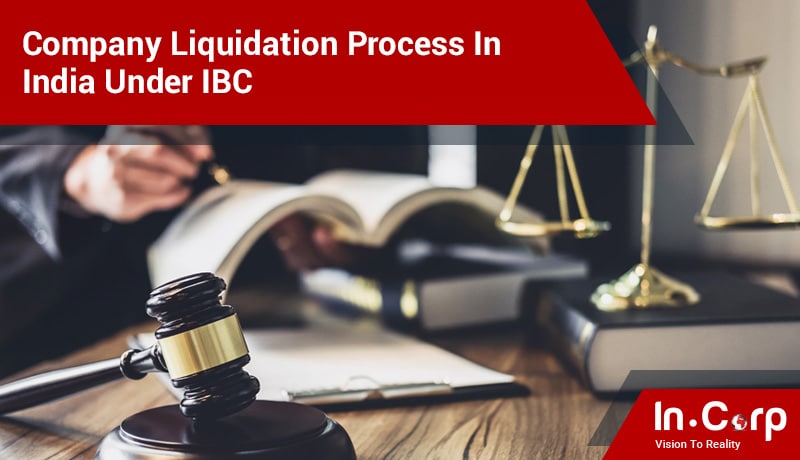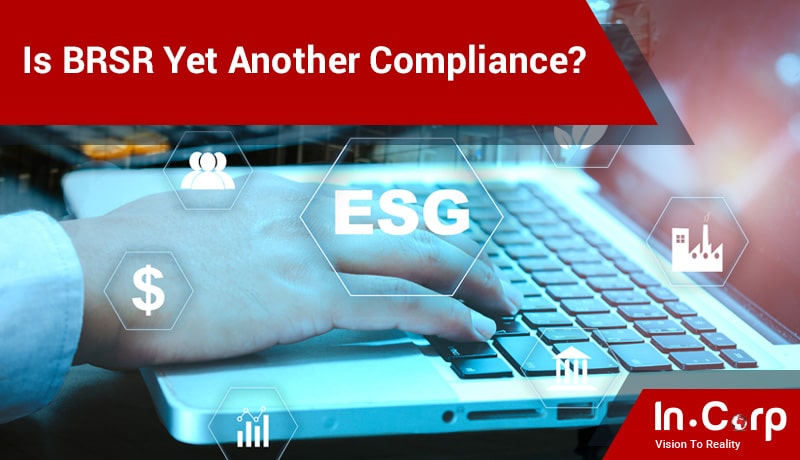If you are a stakeholder of a Company contemplating liquidation, it is important to understand the company liquidation process in India under IBC.
Table Of Contents
What Is Company Liquidation?
Effect & Consequences Of Company Liquidation
Step By Step Company Liquidation Process in India
Laws Governing Company Liquidation Of A Company
Conclusion
Why Choose Incorp?
FAQ’s On Company Liquidation Process in India
What Is Company Liquidation?
Company Liquidation is a process rather than a term. Liquidation is the procedure under which a company is wound up. Company Liquidation under IBC may be
1. Voluntary (where the Company is solvent) or
2. Compulsory (where the Company is insolvent).
The liquidator’s function is to convert the company’s assets into cash & cash equivalents and to distribute the proceeds among the creditors to the extent possible. Any surplus is then distributed among the members of the Company under liquidation.
Effect & Consequences of Company Liquidation
- The moratorium implemented under section 14 of the IBC shall cease to have effect from the day the National Company Law Tribunal (NCLT) passes such liquidation order
- Subject to Section 52 of IBC, no suit or legal proceedings shall be instituted against the corporate debtor. However, a lawsuit or legal proceeding may be initiated by the liquidator only with the prior approval of the Adjudicating Authority, and on behalf of the corporate debtor
- Under this section, the order of liquidation shall be a notice of discharge to the corporate debtor’s officers, employees, and workers, except when the corporate debtor’s business is carried out during the Company Liquidation process by the Liquidator under IBC.
Related Read: Voluntary Liquidation Under IBC 2016
Company Liquidation Process & Steps in a nutshell-
Stage I: Appointment of Liquidator
- Appointment of Liquidator (Section 34) who has submitted the written consent in Form AA of Schedule II
- A public announcement needs to be made in Form B of Schedule II within five days of the pronouncement of the order for liquidation to invite claims, which shall be submitted inside 30 days from the liquidation initiation date
- Once the liquidation order passes, the resolution professional must do the filling of CIRP-5
Stage II: Verification of Claims & Reporting
- Verification and acceptance of claims and appointment of Valuers.
- Preparation of Asset Memorandum and other reports-
- Asset Memorandum- To evaluate the assets of the CD and prepare a report within 75 days. (Section 35(1)(c), Reg 5(1), Reg 34)
- Progress Report- The reporting of the progress of the liquidation within 15 days from the end of each quarter. (Sec. 35(1)(n))
- Preliminary Report- Report prepared by Regulation 13 to be submitted within 75 days. (Reg 2(1)(f) r.w. Reg 13)
- First Progress report- The quarterly report under Regulation 15 to be submitted within 15 days of the end of every quarter (Reg 2(1)(g) r.w. Reg 15).
- Subsequent Progress Report- In case the insolvency professional ceases to act as a liquidator, then within 15 days from the date of cessation, submit the following progress report.
- Sale Reports- To be enclosed with the Progress report after the sale of each asset according to Reg 5(1) r.w. Reg 36.
- Minutes of consultation with the stakeholders – After every meeting, Minutes of consultation with the stakeholders are to be circulated as per Reg 5(1) r.w. Reg 8.
- The Final Report, before distribution, is to be submitted within one year according to Reg 5(1) r.w. Reg 45
Provide Copies of the reports and minutes to stakeholders in electronic or physical forms: on application from stakeholders; receipt of the cost of making reports or minutes; receipt of a confidentiality undertaking. (Reg 5(3))
Related Read: Winding Up Of A Company Under IBC
Stage III- Distribution of proceeds
- The Liquidator shall form Liquidation Estate (subject to inclusions and exclusions) and open a bank account in the name of the corporate debtor, followed by the words “in liquidation,” in a scheduled bank, for the receiving the amounts due to the CD and initiate the sale of assets.
- The liquidation process of any CD under the IBC Code shall be completed within one year from the liquidation commencement date, even if applications for avoidance transactions are pending.
- The liquidator shall not sell any property, whether immovable, movable or any actionable claims of the corporate debtor under liquidation, to any person who is ineligible under section 29A of the Code to become a resolution applicant.
- The proceeds from realisation shall be distributed by the Liquidator within 90 Days (earlier six months) from the receipt of the amount among the stakeholders. (Regulation 42)
- The liquidator shall distribute the assets per the waterfall mechanism (Section 53) after the filing of stakeholders and the asset memorandum with the Adjudicating Authority.
Stage IV- Dissolution of Corporate Debtor under IBC
- After liquidating all the corporate debtor’s assets, the Liquidator must file an application before the Adjudicating Authority for the corporate debtor’s dissolution under Section 54 of the Code.
- If the Liquidator believes that there are insufficient realisable assets to cover the cost of the company liquidation and further inquiry is not necessary into the affairs of the corporate debtor, they may apply for an early dissolution (Regulation 14 of the Company Liquidation Regulations) at any time after the initial report is submitted.
- Orders for dissolution should be filed with the appropriate authority where the CD is registered.
Laws Governing Company Liquidation of a Company
Adjudicating Authority may approve the Resolution Plan under section 31 (1) or pass an order for liquidation of the Corporate Debtor (CD) according to the provisions of Section 33 (Liquidation Commencement Date) (i.e., Chapter III of Part II of IBC) in the following cases: –
- Where no application is filed with the Adjudicating Authority (NCLT) seeking approval of the resolution plan within the prescribed timeline (180 to 270 days, extendable to 330 days, from admission)
- Where NCLT rejects the resolution plan for non-compliance
- Where the Committee of Creditors(CoC) decides to liquidate the CD before confirmation of a resolution plan; or
- Where the CD contravenes, the terms agreed in the resolution plan approved by the NCLT
The Section provides procedures for Company Liquidation which should be read in accordance with the IBBI (Liquidation Process) Regulations, 2016 (herein after referred to as Company Liquidation Regulations).
Related Read: Corporate Insolvency Resolution Process Under IBC
Conclusion
The Company Liquidation provided under the Insolvency and Bankruptcy Code, 2016 (IBC) is the last resort since the whole, and the sole intention of the IBC is to keep the CD going concern and revive it utilising corporate restructuring. The process is time-bound, efficient, and under the supervision of the NCLT. However, the process of Company Liquidation and winding up under IBC is big-budgeted & inordinately lengthy and results in almost complete erosion of asset value. The liquidator can explore any one of the following options as provided in the Company Liquidation Regulations to keep the corporate debtor as a going concern even if the Liquidation order is passed.
- Compromise or Arrangements as per Regulation 2B of Company Liquidation Regulations.
- Sale of Corporate Debtor as a going concern per Regulation 32(e) of Company Liquidation Regulations.
- Sale of Business of Corporate Debtor as a going concern per Regulation 32(f) of Company Liquidation Regulations.
Why Choose InCorp?
We at Incorp, have the expertise and skills to guide you and run the entire process of Company Liquidation Process with experienced Liquidation Professionals and their teams.
Our professionals offer Corporate Recovery and Corporate Restructuring services under the framework of the Companies Act as well as the Insolvency and Bankruptcy Code.



